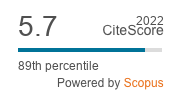An experiment was conducted to compare the suitability of chicken, pig, and cow manure as feed for larvae of the black soldier fly (Hermetia illucens (L.); Diptera: Stratiomyidae). Newly hatched larvae were inoculated on moistened manure (33% dry matter). Water and dried manure were added three times per week, until the first prepupae appeared. Survival was between 82 and 97%, indicating that the tested substrates were suitable. However, development time was much longer than on the control diet (144-215 vs 20 days). Efficiency of conversion of ingested nitrogen (N-ECI) was higher on pig manure than on chicken and cow manure, while the ECI for phosphorus was highest on cow manure. Substrate nitrogen content decreased in the chicken manure, but were stable in pig and cow manure. Phosphorus concentration, and N:P-ratio decreased in all treatments. Since a large proportion of the nitrogen from the manure (23–78%) was lost, the production system would require an air washer for instance, to make it ecologically sound. Shorter development times are required in order to improve economic viability. Drying of the manure could have decreased its nutritional value due to the destruction of microorganisms and heat-labile vitamins. A production system using fresh manure could result in a considerably shorter development time and increased conversion efficiency.
Research-Article
Nutrient utilisation by black soldier flies fed with chicken, pig, or cow manure
D.G.A.B. Oonincx Related information
1 Department of Plant Sciences, Laboratory of Entomology, Wageningen University, P.O. Box 16, 6700 AA Wageningen, the Netherlands
, A. van Huis Related information1 Department of Plant Sciences, Laboratory of Entomology, Wageningen University, P.O. Box 16, 6700 AA Wageningen, the Netherlands
, J.J.A. van Loon Related information1 Department of Plant Sciences, Laboratory of Entomology, Wageningen University, P.O. Box 16, 6700 AA Wageningen, the Netherlands
Journal of Insects as Food and Feed: 1
(2)- Pages: 131 - 139
Published Online: March 30, 2015
Abstract
2022 Journal Impact Factor
5.7
source: Journal Impact Factor 2023™ from Clarivate™

Institutional Offers
For institutional orders, please contact [email protected].
Purchase Options
-
G. Daş, M.M. Seyedalmoosavi, K. Schleifer, M. Mielenz and C.C. Metges
-
-
M. Barrett, S.Y. Chia, B. Fischer and J.K. Tomberlin
-
D.G.A.B. Oonincx and M.D. Finke
-
G. Bosch and K.S. Swanson
-
K.B. Barragan-Fonseca, M. Dicke and J.J.A. van Loon
-
A. van Huis
-
M. Tschirner and A. Simon
-
S. Kelemu, S. Niassy, B. Torto, K. Fiaboe, H. Affognon, H. Tonnang, N.K. Maniania and S. Ekesi
-
S. Diener, C. Zurbrügg and K. Tockner
Editor's Choice: Birgit Rumpold



